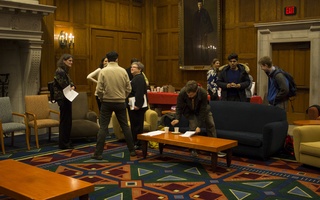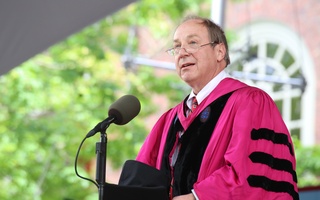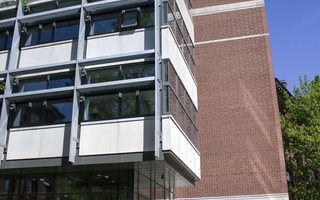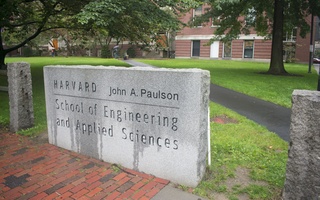{shortcode-636b3da13dda1848ba09b8fed4ee0e8176133175}
With the concentration declaration period for sophomores now over, two major trends acting in opposition stand to change the face of Harvard. Concurrent with a decline in the humanities comes a rapid expansion of applied science, technology, engineering, and mathematics, arguably detrimental to higher education, learning, and more broadly, the world.
Often lovingly referred to as a “small liberal arts college in Boston,” Harvard has historically dominated the social sciences and the humanities, even as peer institutions have emphasized computer science and engineering.
Meanwhile, courses such as Computer Science 50: “Introduction to Computer Science I” have in recent years experienced drastic increases in enrollment. Reporting by The Crimson last year revealed that from 2008 to last year, Computer Science rose from 86 concentrators in 2008 to 363 last year, and Applied Mathematics more than doubled in its count.
Additionally, English and Comparative Literature concentrator numbers have decreased significantly in their counts. Undergraduates might today be hard-pressed to find peers concentrating in these heavily humanities-centric fields.
Therein lies the troubling issue: The foundation of study which has historically made Harvard what it is is dying. And that is an issue which needs to be addressed.
Certainly, this isn’t an isolated incident. According to The Atlantic, humanities fields across the country, increasing history and English, have decreased in major counts in recent years.
And yet, as the single most prominent institution of higher education, it remains up to Harvard to determine the future. If the percentage of humanities and social science concentrators continues to decline, that trend will undoubtedly be reflected across the nation. If Harvard doesn’t take initiative in promoting these fields, it can be expected that no one else will, either.
To claim that the University is the most important institution in promoting education reform would be presumptuous. However, should Harvard, now under University President Lawrence S. Bacow, enact proper action promoting those studies which have experienced a marked decline, we may very well encourage other institutions to follow suit. Bacow’s recent listening tour was carried out with the intent of reaching out to peer universities, looking to establish mutual pathways of development. Traveling to his birthplace of Detroit, he met community members and argued for the importance of higher education.
The benefits of promoting the humanities and social sciences are numerous. Creativity, logical thinking, and reasoning are all necessary life skills, and proper communication is imperative to excel in professional environments. And, after all, those who fail to learn from history are doomed to repeat it. Without scholars understanding economics, government, and sociology, the foundations of our society have no basis.
It’s undeniably great that Harvard has an updated curriculum providing students with important knowledge in computer science and engineering, but to ignore other fields is to ignore the very foundations of our culture, our society, and our existence.
There’s a frequently-used joke about the uselessness of non-science, technology, engineering, and math fields. Engineering is commonly touted as the end-all be-all for a successful career, and the liberal arts are seemingly only useful for research and scholarly purposes. Economics is for “snakes,” English is for secondary school teachers, and gender studies is totally and utterly useless.
Maybe they’re all right. Maybe science fields ensures the highest chance of a stable, post-undergraduate career, and maybe the humanities are ultimately useless. But life is about more than that — it’s about financial stability and economic portfolios, of postmodern traditionalism and normality.
To current freshmen: Don’t give in to the pressure. Don’t think that you need to take CS50 to be successful, don’t think you need to concentrate in economics to make money, and don’t think that everyone can (or should) try to follow the same path to success. Because in the end, we only have one life to live — live it as you desire.
Noah D. Dasanaike ’22, a Crimson Editorial comper, lives in Canaday Hall.
Editor’s Note: An earlier version of this op-ed included a photo of an individual that incorrectly implied an association between the perspective of the op-ed and the individual. The photo has since been updated.
Read more in Opinion
In a World Without Prisons

















